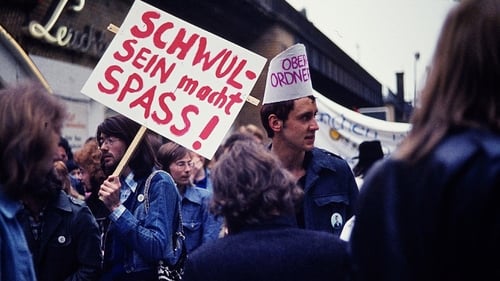
Editor
Zimbabwean landmine clearers Shame and Cosimas, as well as medic Previous have been traveling to the other side of the world for years to clear mines in the British Falkland Islands. In the subpolar cold, between sand dunes and penguins, they defuse and blow up the legacies of a forgotten war.

Editor
Putin’s war of aggression has fundamentally changed the German-Russian relationship. This is especially a special topic for those people who grew up in the GDR. Because what the USA were to many in the west, the Soviet Union was to many in the east: “the big brother”. And now? The invasion of Ukraine by the Russia calls old certainties into question, rocked convictions, and runs like a rift through families.
In “Russia, Putin and we East Germans”, the ARD journalist and host Jessy Wellmer embarks on a very personal journey through the east of Germany. Born in 1979 in Güstrow in Mecklenburg, the Russian war of aggression also caused intensive discussions in her family which ultimately were the cause for this film. How do the East Germans think with regards to Russia? Why is there often a greater deal of closeness to Russia here? And what does it say about the divide which still exists in the German populace more than 30 years after the fall of the wall?

Editor
MY WONDERFUL WEST BERLIN recounts the lives and struggles of gay men in West-Berlin. Through present-day scenes and never before seen archival footage, a fascinating picture emerges of a city, that today characterizes itself as a dream destination and place of refuge for gays.

Editor
In 1987 GDR citizen Mario Röllig was arrested in Hungary for attempting to flee the GDR. Nowadays he gives talks about his experiences. This portrait shows just how subjective and riddled with taboos attempts to interpret GDR history can be.

Sound

Editor
If we compare ourselves with our genetically closest living relatives, the chimpanzees, we have few physical advantages. We are far weaker, cannot move nearly as fast, and do not have the same climbing capabilities. Instead, humans excel in areas such as architecture, religion, science, language, writing, art, culture, and ideas. These achievements are due to our larger brain that contain billions of neurons. It was the rapid growth of our brain, originating about 2 million years ago, that allowed us to be the predominant species of the world. What caused this rapid growth of our cerebral cortex? Researchers worldwide have asked this question for many years, but now there finally seems to be an answer.




